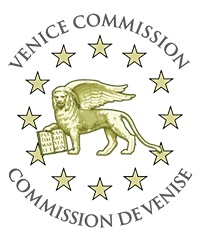Related Research Articles

Comparative law is the study of differences and similarities between the law of different countries. More specifically, it involves the study of the different legal "systems" in existence in the world, including the common law, the civil law, socialist law, Canon law, Jewish Law, Islamic law, Hindu law, and Chinese law. It includes the description and analysis of foreign legal systems, even where no explicit comparison is undertaken. The importance of comparative law has increased enormously in the present age of internationalism, economic globalization, and democratization.

A societas Europaea is a public company registered in accordance with the corporate law of the European Union (EU), introduced in 2004 with the Council Regulation on the Statute for a European Company. Such a company may more easily transfer to or merge with companies in other member states.
Conflict of laws is the set of rules or laws a jurisdiction applies to a case, transaction, or other occurrence that has connections to more than one jurisdiction. This body of law deals with three broad topics: jurisdiction, rules regarding when it is appropriate for a court to hear such a case; foreign judgments, dealing with the rules by which a court in one jurisdiction mandates compliance with a ruling of a court in another jurisdiction; and choice of law, which addresses the question of which substantive laws will be applied in such a case. These issues can arise in any private-law context, but they are especially prevalent in contract law and tort law.

English law, also known as English and Welsh law or English Common law, is the common law legal system of England and Wales, comprising mainly criminal law and civil law, each branch having its own courts and procedures.

European Union law is a system of rules operating within the member states of the European Union (EU). Since the founding of the European Coal and Steel Community following World War II, the EU has developed the aim to "promote peace, its values and the well-being of its peoples". The EU has political institutions, social and economic policies, which transcend nation states for the purpose of cooperation and human development. According to its Court of Justice the EU represents "a new legal order of international law".

The Data Protection Directive, officially Directive 95/46/EC, enacted in October 1995, is a European Union directive which regulates the processing of personal data within the European Union (EU) and the free movement of such data. The Data Protection Directive is an important component of EU privacy and human rights law.

The European Cooperative Society is, in corporate law, a European cooperative type of company, established in 2006 and related to the Societas Europaea (SE). They may be established and may operate throughout the European Economic Area. The legal form was created to remove the need for cooperatives to establish a subsidiary in each member state of the European Union in which they operate, and to allow them to move their registered office and headquarters freely from one member state to another, keeping their legal identity and without having to register or wind up any legal persons. No matter where they are established, SCEs are governed by a single EEA-wide set of rules and principles which are supplemented by the laws on co-operatives in each member state, and other areas of law.

Civil law is a legal system originating in mainland Europe and adopted in much of the world. The civil law system is intellectualized within the framework of Roman law, and with core principles codified into a referable system, which serves as the primary source of law. The civil law system is often contrasted with the common law system, which originated in medieval England, whose intellectual framework historically came from uncodified judge-made case law, and gives precedential authority to prior court decisions.
Minority rights are the normal individual rights as applied to members of racial, ethnic, class, religious, linguistic or gender and sexual minorities, and also the collective rights accorded to any minority group.

The Venice Commission, officially European Commission for Democracy through Law, is an advisory body of the Council of Europe, composed of independent experts in the field of constitutional law. It was created in 1990 after the fall of the Berlin Wall, at a time of urgent need for constitutional assistance in Central and Eastern Europe.

Directive 2014/65/EU, commonly known as MiFID 2, is a legal act of the European Union. Together with Regulation (EU) No 600/2014 it provides a legal framework for securities markets, investment intermediaries, and trading venues. The directive provides harmonised regulation for investment services of the member states of the European Economic Area — the EU member states plus Iceland, Norway, and Liechtenstein; the United Kingdom will continue to implement the directive during the transition period. Its main objectives are to increase competition and investor protection, and level the playing field for market participants in investment services. It repeals Directive 2004/39/EC.

The tender years doctrine is a legal principle in family law since the late 19th century. In common law, it presumes that during a child's "tender" years, the mother should have custody of the child. The doctrine often arises in divorce proceedings.
International law, also known as public international law, the law of nations and international ethics, is the set of rules, norms, and standards generally recognized as binding between nations. It establishes normative guidelines and a common conceptual framework for states across a broad range of domains, including war, diplomacy, trade, and human rights. International law aims to promote the practice of stable, consistent, and organized international relations.
Africa's fifty-six sovereign states range widely in their history and structure, and their laws are variously defined by customary law, religious law, common law, Western civil law, other legal traditions, and combinations thereof.
In the European Union, harmonisation of law is the process of creating common standards across the internal market. Though each EU member state has primary responsibility for the regulation of most matters within their jurisdiction, and consequently each has its own laws, harmonisation aims to:
European tort law, as a term, is not strictly defined and is used to describe a number of various features concerning tort law in Europe. The concept developed alongside other major historic developments of European integration.
Comparative advertising, or combative advertising, is an advertisement in which a particular product, or service, specifically mentions a competitor by name for the express purpose of showing why the competitor is inferior to the product naming it. Also referred to as "knocking copy", it is loosely defined as advertising where "the advertised brand is explicitly compared with one or more competing brands and the comparison is obvious to the audience". An advertising war is said to be occurring when competing products or services exchange comparative or combative advertisements mentioning each other.
The Principles of European Contract Law (PECL) is a set of model rules drawn up by leading contract law academics in Europe. It attempts to elucidate basic rules of contract law and more generally the law of obligations which most legal systems of the member states of the European Union hold in common. The Principles of European Contract Law are based on the concept of a uniform European contract law system and were created by the self-styled Commission on European Contract Law set up by Ole Lando. The PECL take into account the requirements of the European domestic trade.

Judicial review is a process under which executive, legislative and administrative actions are subject to review by the judiciary. A court with authority for judicial review, may invalidate laws, acts and governmental actions that are incompatible with a higher authority: an executive decision may be invalidated for being unlawful or a statute may be invalidated for violating the terms of a constitution. Judicial review is one of the checks and balances in the separation of powers: the power of the judiciary to supervise the legislative and executive branches when the latter exceed their authority. The doctrine varies between jurisdictions, so the procedure and scope of judicial review may differ between and within countries.
The general principles of European Union law are general principles of law which are applied by the European Court of Justice and the national courts of the member states when determining the lawfulness of legislative and administrative measures within the European Union. General principles of European Union law may be derived from common legal principles in the various EU member states, or general principles found in international law or European Union law. General principles of law should be distinguished from rules of law as principles are more general and open-ended in the sense that they need to be honed to be applied to specific cases with correct results.
References
- ↑ "History - Commission on European Family Law". ceflonline.net. Retrieved 2021-04-18.
- ↑ Antokolskaia, Masha (2010). "Harmonization of substantive family law in Europe: myths and reality". Child and Family Law Quarterly. 22: 397.
- ↑ Boele-Woelki, Katharina (December 2005). "The principles of European family law: its aims and prospects" (PDF). Utrecht Law Review. 1 (2): 160–168. doi:10.18352/ulr.13.
- ↑ Pintens, Walter (March 2008). "Family law in Europe: Developments and Perspectives". The Comparative and International Law Journal of Southern Africa. 41 (1): 155–174. JSTOR 23252722.